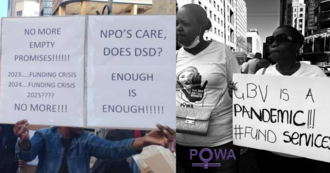- Featured
- Clean air
- Climate justice
- Consumer Rights
- Corporate Accountability
- Data access
- Early Childhood Development
- Economic fairness
- Education
- Electoral fairness
- Environmental justice
- Food justice
- Gender based violence
- Grants/social assistance
- Health
- Housing and infrastructure
- Industry interference
- Land Justice
- LGBTQIA+ rights
- Media/ information access
- Public transport
- Racism
- Reparations
- Safety
- Sanitation
- Service Delivery
- Sexual and Reproductive Rights
- Social justice
- Unemployment
- Womxn's rights/ gender equality
- Workers' rights
- More
-
Investigate Bizana Police Station for corruptionIt is deeply disturbing to live in a community where we feel unsafe and not protected by our own police force. We want Bizana to be free from the high levels of crime and drug infiltration. Last year the community of Mbizana took to the streets, protesting against the high crime rate in the area. The community has been fed up with the high number of murders, rape cases, kidnappings, and drugs [5]. In a recent incident, a 38-year-old magistrate Buliswa Phatho was shot and killed last week, and her husband and two kids were seriously injured. Meanwhile, a Grade 12 Bizana village High School learner, Ntlakanipho Rafana was kidnapped, killed and dumped in a nearby forest. Civil organizations want the police and justice system to intensify their fight against the increasing crime rate in Mbizana. The protest was covered nationally here: https://youtu.be/6tV9unyOUFA?si=JwVDJ84BzN7AQ47f&t=8 References [1] 2 Shootings in KZN, 1 in Eastern Cape, cop among 4 killed. Caxton News. July 15 2024. https://www.citizen.co.za/network-news/lnn/article/2-shootings-in-kzn-1-in-eastern-cape-cop-among-4-killed/ [2] Mbizana Police Officers Nabbed for Corruption and Extortion, by Babalwa Ndlanya for Mthathat Express. 01 December 2023. https://www.news24.com/news24/community-newspaper/mthathaexpress/mbizana-police-officers-nabbed-for-corruption-and-extortion-20221201 [3] Release of Eastern Cape Crime Statistics. By SAPS 09 October 2023. https://www.saps.gov.za/newsroom/msspeechdetail.php?nid=48315 [4] Pensioner raped and body parts removed in horror. By Max Mxabo and Estelle Ellis for Daily Maverick. 30 March 2023. https://www.dailymaverick.co.za/article/2023-03-30-pensioner-raped-and-body-parts-removed-in-horror-murder/ [5] Community of Mbizana protests the high crime rate in the area. SABC News. https://youtu.be/6tV9unyOUFA?si=JwVDJ84BzN7AQ47f&t=869 of 100 Signatures
-
WE DEMAND AN INQUIRY AGAINST THE DEPARTMENT OF BASIC EDUCATION!* ELEMENTARY PHASE EDUCATION IS BEING DECLARED THE NO.1 PRIORITY IN SOUTH AFRICA! * ELEMENTARY PHASE EDUCATION IS THE INCEPTION IN HUMANS LIFE! * ELEMENTARY PHASE EDUCATION IS THE INITIATOR OF THE ECONOMY & GDP OF OUR COUNTRY! * ELEMENTARY PHASE EDUCATION DETERMINES AN INCREASE TO SCHOOL ATTENDANCE AND PASS RATE; BE IT IN GRADE ONE(1) TO GRADE TWELVE (12)!1,946 of 2,000 SignaturesCreated by Melchisedec Shalom
-
Tell South African Government to prioritize Endometriosis patientsIt is extremely important because for too long young girls and women have suffered this chronic disease without getting medical assistance. Women's reproductive organs are badly affected and damaged by this condition. Not only that, it affects them emotionally, relationally psychologically and financially. For most women this condition has led to infertility. Personal testimony: "I was a victim from 13 years of age till I menopaused at 52 recently, from day one of my menstrual cycle I suffered severe pelvic pain and it proceeded to other parts of the body. I was diagnosed at 27 years old with stage 4 endometriosis. At that time I was married and trying to conceive, only to find that my entire reproductive system was damaged. Doctors tried, I conceived several times and miscarried all those pregnancies. Then I suffered 2 ectopic pregnancies. All my children died in the womb because someone downplayed and called "normal" the monthly horrible pains I suffered 14 days of every month without fail" Please add your name to this petition to support the call for early and accurate endometriosis diagnosis. References [1] The low down on endometriosis. By Samantha Lee-Jacobs for News24. 01 April 2024 https://www.news24.com/news24/community-newspaper/peoples-post/the-low-down-on-endometriosis-20240401 [2] Endometriosis among African women. By Mecha, E. O., Njagi, J. N., Makunja, R. N., A Omwandho, C. O., K Saunders, P. T., & Horne, A. W. for Reproduction & Fertility, 3(3), C40. https://doi.org/10.1530/RAF-22-0040. July 2022.823 of 1,000 SignaturesCreated by Olga Mkhize
-
Call on Finance Minister and Deputies to increase and expand Sugary Drinks TaxIt is concerning that big businesses have already started publicly pushing for meetings with the new government of national unity. The Consumer Goods Council of South Africa has once again started lobbying against the Sugary Drinks Tax [1]. The sugar industry commissioned studies claiming the HPL was causing job losses. However, researchers from SAMRC/Wits Centre for Health Economics and Decision Science, Priceless SA, found no evidence of job losses due to the HPL [2]. Big business and its associates continue to use their enormous resources to delay, dilute, and delegitimise decisions that are in the public interest. They have proven time and time again that they are bullies and continuously hold the country hostage with threats of job losses and divesting. References [1] Public and private sector cooperation in SA is key to economic growth. https://www.dailymaverick.co.za/article/2024-07-01-public-and-private-sector-cooperation-in-sa-is-key-to-economic-growth [2] https://www.dailymaverick.co.za/article/2024-06-17-sugarcane-growers-stand-by-claims-of-job-losses-linked-to-sugar-tax/3,522 of 4,000 SignaturesCreated by HEALA

-
Enforce Mandatory Bank Statement Provision for Child Maintenance Application ProcessThe impact of withholding bank statements is ignored despite most women being unemployed and earning less than men. Women are, for the most part, expected to carry the financial responsibilities alone while the fathers live their best lives without repercussions. The prolonging of the maintenance application process is very common in our courts, much to the detriment of mothers who have to witness the child going to school without full school uniform because the mother is unemployed and can not afford it, or having to resort to going to a loan shark (Mashonisa)because the mother needs money to buy food and end up creating an unending debt. The mother has to prove that the father is able to afford the financial request that the mother lodges with the court, therefore ensuring that fathers provide their bank statements is of utmost importance. Some fathers often verbally claim that they cannot afford to pay maintenance yet he does not let his bank statement support or oppose his claim. During mediation, fathers are given the liberty to tell the maintenance officers how much they can pay as maintenance without any pressure to produce the bank statement so that the maintenance officer can ascertain how much he should be ordered to pay. This kind of sloppiness allows fathers to dodge the application process altogether. "I began the maintenance process on 28 August 2019. We both appeared for mediation, except the father of my child did not bring his bank statement even after being given six weeks before the first appearance.He knew it was mandatory to bring it on the first court date. From the 28th of August 2019 to 14 September 2022, he had several excuses of why he could not provide his bank statements, some of which are as follows; 28 August 2019 - he didn’t know that he was supposed to bring it. A six week postponement was given to give him as a chance to bring it on the following date which fell on the 8th of October 2019 – where he insisted that he didn’t get a chance off work to go to the bank, another six weeks was granted by the court to fall on 20 November 2019 – when he presented a fake suspension letter that said he was not getting paid for the following 3 months pending investigation. The claim and letter would have had to be investigated for further six weeks postponement for us to return on the 14th of January 2020 – where he claimed that he was no longer working. A further six weeks of investigation meant we would be back in court on the 25th of February 2020 – where he did not show up for yet another six weeks extension that would see us back in court on the 7th of April 2020 except the country went into lockdown on 26 March 2020. In September 2021, lockdown regulations eased a bit and I resumed the application process. The excuses started again with six weeks of postponement every time that got us to October 2022 when he alleged that our daughter was not his. I felt like I was compromising my daughter’s safety by forcing the process which had already proven that I was fighting a losing battle Feeling extremely burnt out and emotionally drained, I fell through the cracks and abandoned the process altogether" - Sonia While this was happening, I had to sell off my valuables, such as my fridge, sofas, and jewelry, to pay rent, pay for school transport, buy groceries, and maintain basic monthly expenses. At the time, the only income I had was the child grant (R480). I have borrowed taxi fare to and from court since August 2019, accumulating an unending debt. If you are a woman who has suffered this kind of injustice before or knows someone who has or if you are a man who knows about men who evade the maintenance process come and join us as we fight this injustice If enough of us come together, we can ensure that we put a spotlight how the courts are not enforcing an important regulation in the justice system. The President and other politicians value the rights of children hence we feel it is time to amplify children’s voices until the Minister of Justice and Constitutional Development criminally charges fathers who do not comply with the requirements of the application process. Sign this petition now. South Africa is in a dawn of new era with a newly appointed Minister of Justice and Constitutional Development Thembi Nkadimeng whom we challenge to take a fresh new look at the current system and fix loopholes that are a hindrance to achieving children’s rights and a more effective and timeous maintenance application process. References Maintenance Act 99 of 1998173 of 200 SignaturesCreated by Sonia Mzunga

-
Bring back the mobile clinic in Ekurhuleni townships, ASAP.South African poor, black women are the face of health inequity [1]. Go to any public healthcare facility around the country's townships and you're likely to find snaking queues characterized by grant earners who are mainly there for their newborns, ailing or child immunization visits, or their own family planning services. This, unfortunately, happens on a daily. I should know because I am one of those women. When my daughter was born on a cold June midday twelve months ago, I was immediately advised to take her to my nearest clinic for her three day's checkup. When I got there, the sister who had examined us then informed me that from then on, I would have to make use of the mobile clinic which operated around the area of Mailula Park in Vosloorus every Mondays and Thursdays. It was a relief to know that I wouldn't have to wake up in the wee hours of the morning, prepare myself and my newborn to brave the snaking queues every time just for her to get immunized. With the mobile clinic which always arrived at 10 O'clock on Thursday mornings, as per my day of preference, I would get there at the same time and got serviced without any hassles. However, with the main polyclinic, it was almost mandatory that parents bringing their children should get there before 8 O'clock or risk getting their heads bitten off by grumpy staff workers who didn't want to have to work overtime, understandably so. The mobile clinic was a welcomed convenience, particularly for those women who lived in the informal settlement of Extension 20, that is far away from poly clinic as that meant that they no longer had to travel, either using money that they don't have for taxi fare, or by walking that long distance with sick children on their backs. However, when I took my baby for her nine month's immunization to the mobile clinic one March Thursday morning, I was shocked to find that I was the only one there with absolutely no queue in sight. A nearby neighbour eventually informed me that the service had been discontinued since January, apparently due to shortage of staff. I found it rather bizarre that that could've been an acceptable reason as it was just in September of 2018 that informal settlements that are not within 3 - 5 km radius from an established clinic around the city were promised to receive healthcare at a step closer through an additional 14 mobile clinics [2]. At my child's recent twelve month's immunization visit, I arrived at poly shortly after 7 O'clock to avoid her picking up germs by staying in the clinic longer than necessary while waiting to get serviced. Needless to say that that was a pointless exercise as not only was I beaten to the front of the queue, but there were scores of mothers who had brought their newborns to their three day's checkup, who arrived after me and had to be placed at the front of the queue as per the clinic's rule. No mother would have any problem with that as we had all been there before and appreciated the Ubuntu. In fact, it had already clocked 11am when one frail looking new mom came in and sat next to me at the reception where I was still waiting to get registered. I told her she didn't have to queue for the three day's checkup, to which she replied and said that she was already denied that privilege as she only arrived then and not before 8 O'clock. I could tell she had not slept a wink and was immediately reminded of my first 72 hours with a colicky infant. I felt it was unacceptable that she was expected to wait about four hours like I just had, just for herself and newborn to get examined. In summary, I asked those who came after me if she could at least be placed in front of us. I left the clinic two hours later, which makes it a total of six hours, with a flu infected child. The World Health Organisation stated that any reform in primary healthcare represents a single great opportunity for the improvement of the lives of people and performance of the healthcare system as a whole [3]. Therefore, the convenience to basic healthcare services is not a privilege, it is a human right. Act now and let us remind the City of Ekurhuleni Municipality of the promise that they made in making basic healthcare services accessible to the poor. Sign this petition below. [1] https://aho.org/news/south-african-poor-black-women-are-the-face-of-health-inequity [2] https://www.sanews.gov.za/south-africa/additional-mobile-clinics-ekurhuleni [3] https://www.gov.za/news/media-statements/new-mobile-clinics-enhance-school-health-programme-and-access-people-informal203 of 300 SignaturesCreated by Nozipho Ntshingila

-
[VICTORY] Calling on Bez valley Clinic to take action against patient discrimination!For years, there have been reports by community members that the staff at the Bez valley clinic have been abusing their powers as healthcare professionals. They have been engaging in unacceptable and criminal behaviour of medical xenophobia. This issue of medical xenophobia is pressing and very problematic. Most undocumented foreign national patients have reported on various platforms that they have been denied their rights to healthcare and are often subjected to xenophobic comments from the staff. As the community we need to make sure that this message is very loud and clear; what is happening at our clinic is against the law. Undocumented individuals have the right to access various healthcare services, these include free access to contraception, HIV/Aids treatment and other basic needs; when it comes to hospital treatment and emergency healthcare these have to be paid for [1]. The criminal behaviour of turning away pregnant undocumented foreign nationals needs to be thoroughly investigated. The laws in South African are very clear and the clinic needs to abide by these laws. Numerous reports have also surfaced on social media platforms where community members have documented how the staff is rude to patients and fail to provide service delivery. The clinic has been documented, repeatedly closing earlier than the scheduled hours; the gates remain open however when you get to the security or the admin section; you will be told that no patient will be assisted after 11 AM. This has also been placing an extreme strain on other clinics around Bez valley, patients end up going to Bedfordview clinic, Hillbrow clinic and Jeppe clinic. On the Facebook group called “The Bez valley Community”; multiple users have submitted posts and videos of evidence where they are being discriminated upon. When these videos are posted they amount massive views and comments from the community members, where different users document their ill experiences at the clinic. In one video, a user called S. Tshuma provides evidence where one of the nurses has instructed the staff not to attend to anyone that comes after 11am. The mother seen in this video is in distress because her child needs emergency assistance, but she had to be turned away because according to the clinic one cannot have an emergency after 11 AM [2]. On the 17th of October 2023, there was another post by L. Tlhageng, where he asked community members to detail their experiences at the clinic. Going through the comment section, it was evident that the majority of the community were expressing the dissatisfaction with the clinic and the main issues was medical xenophobia and the utter disrespect and disregard of their basic healthcare rights. In another video; one of the nurses can be seen shouting abuse at patients that were in the waiting area and telling them that she doesn’t care even if they take the video. What is happening at our beloved Bez valley clinic is against the law. The Constitution states that all people in South Africa, regardless of status or nationality, have the right to have access to health care services, and that ‘no one’ may be refused emergency medical treatment [4]. As a community member you have the power to stop these xenophobic and discriminatory acts! We need to act now! We need to rise, come together and stand up for our rights and make sure that the Bez valley Clinic Manager takes proper urgent decisive action. References: [1] Migrants & Refugees: Health access; www.scalabrini.co.za. [2] S. Tshuma, https://www.facebook.com/reel/645461107742183 [3] https://www.facebook.com/groups/160190411141/search/?q=fikile) [4] Constitution of the Republic of South Africa, 1996. By: Nomzamo Ngcobo165 of 200 SignaturesCreated by Nomzamo Octavia NGCOBO
-
Tell the Independent Commission of South Africa to pay us our full salariesExploitation should have no place in a democratic South Africa. When a reputable organization like the IEC exploits its workers, what kind of standard is it setting for the nation? "I was employed as a Counting Officer during the recent election. My shift began at 6 PM on election day. Upon arrival, I was immediately thrust into a grueling situation: the electoral staff who had been working since before 6 AM were exhausted, understaffed, and hadn't eaten or taken a proper break. Despite the dire conditions, I worked tirelessly until around 11 PM when voting was concluded, then started counting. The hall where we worked was freezing, forcing most of us to drink warm water just to stay warm because we had no coffee or tea. By 7 AM, we were ravenous. We continued to work on empty stomachs until 1 PM the next day, they did not even arrange breakfast for us. Just like most of the young people who worked during the election, I am a 32-year-old single mother of two, with a Bachelor’s degree and currently pursuing a Postgraduate Diploma with UNISA. My CV is rich with years of experience because, like my colleagues, I seize every job opportunity that comes my way. I just haven't found anything permanent. To take this job, I had to borrow money for transportation and pay a childminder to look after my kids. When I received the pay notification, I broke down in tears. How am I supposed to repay the people I owe? On top of that, I caught a cold from the prolonged exposure to the harsh environment and lack of sleep. I applied for this job through their online recruitment system and had no contact other than with my manager. Since then, I have been calling all their HR offices and Payroll, only to be constantly referred to the next person, with no resolution in sight. We deserve to be paid for the hard work we put in. Please, pay us the money we earned through our dedication and sacrifice" It is important to note that we are aware of the underfunding currently plaguing the IEC and other state entities but this should not mean that they should treat workers unfairly. It is not enough to simply dismiss workers by saying they did not sign a register as a reason they still haven't been paid. We live in a country with a high unemployment rate, the IEC as an organisation which values integrity and accountability should serve as an example in how their treat their workers. References [1] IEC staff frustrated over delayed and insufficient election payments. https://www.snl24.com/dailysun/news/iec-staff-frustrated-over-delayed-and-insufficient-election-payments-2024061394 of 100 Signatures
-
Justice for ECD | Grade R Teachers!Every South African is affected by an ECD | Grade R Teacher one way or the other; in a positive way of Education. These Practitioners | Teachers are very important and critical to the upbringing and grooming of our children with special skills imparted on infants at a preparatory stage, in which is a critical state in the life of a human being. We always ask a similar question: “Why are teachers underpaid and with less benefits while they produce all careers such as Medical Doctors, Lawyers, Social Workers, Police, Public Servants, Surgeons, Scientists, Corporate Business, Politicians, and more. It is well known that public servants such as teachers; must be well taken by the government after adhering pension. But it is not the case with the Grade R Teachers; the Ministry of Education is alleged to recompense or pay all pension teachers a once off payment for only two years of all the years they worked and without a government pension contribution. Justice for Workers and South African Early Childhood Development Teachers Union (SAECDTU) asks for your partnership and solidarity in this noble and matter of National Interest. We cannot allow the government’s maladministration and day-light robbery of hard earned monies of trusted servants (Teachers) who are responsible to care for our children on a daily basis for at least 8-12 hours. I have signed this petition already; join thousands of South Africans who advocates for justice.2,690 of 3,000 SignaturesCreated by Melchisedec Shalom
-
Don’t delay strong warning label regulationsIn South Africa, confusing and overly technical nutritional information is buried at the back of the tins, boxes, and bottles we buy at the store. But Front-Of-Pack Warning Labels would provide consumers with easy-to-understand information so we know what products are high in sugar, salt, fat, and added sweetener. Knowing what is in our food could help reduce diseases like type-2 diabetes and high blood pressure, which can lead to stroke or heart disease [1]. Some big businesses will do anything to protect their profits, even if it hurts our health. Cigarette companies have tried to stop government warning labels on their products, and already some big food businesses have been finding ways to lobby the health department behind closed doors [2]. We can’t afford any more delays. It’s been 10 years since the Health Department proposed new labelling regulations [3], but according to Daily Maverick, these regulations were “... shot down internally for reasons that remain obscure, according to a former health Department employee” [4]. References [1] https://www.thelancet.com/journals/langlo/article/PIIS2214-109X(16)30113-9/fulltext [2] Here’s why you should care about the food industry lobbying the health department behind closed doors, By Laura López González for Daily Maverick, 08 February, 2023 [3] Regulations: Labelling and advertising of foods: Amendment, Department of Health, 29 May 2014 [4] R3337 food labelling regulation changes delayed as health department drags feet in review process, By Adèle Sulcas for Daily Maverick, 16 February 202413,982 of 15,000 Signatures
-
Why are GBV services closing during a GBV pandemic President Ramaphosa?We have to act now, POWA urgently needs our help. If enough of us come together, we can force President Ramaphosa and Premier Lesufi to act. The team at POWA are doing everything they can, but they need our help. GBVF is a priority in South Africa and a serious social ill that affects women and children. Our President, Mr Cyril Ramaphosa declared GBFV as a national pandemic. POWA provides critical services that help victims and survivors. Cutting funding undermines victims. “While we wait, women continue to die at the hands of men!” - POWA's executive director, Thoko Budaza.654 of 800 Signatures
-
Increase the minimum wage for Volunteer Food Handlers (VFH) to R28,79 per hour.It is not right that the Department pays us below what the country's National Minimum Wage is. This is exploitative and impacts on us very negatively as we also have groceries and home expenses to pay for ourselves and our families. The service we provide is very important and our role as workers should be acknowledged and we should be given the respect we deserve like all the other staff members at the school" - An affected food handler, slightly edited for clarity and brevity. The Labour Research Service (LRS) put together this video to show the struggles food handlers face. Watch here it here: https://youtu.be/PBtWU-lVSdk?t=51 * Volunteer food handlers are employed under the Social Sector arm of the Expanded Public Work Programme (EPWP) for the School Nutrition Programme, where community members are identified and employed to cook and feed over 9 million learners in schools, thereby addressing malnutrition. According to the National Minimum Wage signed into law in 2024, the national minimum wage has been set at R27,58 per hour, while those employed under EPWP are only entitled to a minimum wage of R15,16 per hour. These rates have been adjusted for 2025 with the increase to be effected from 1 March 2025. The adjusted rates are as follows R28,79 per hour for the National Minimum Wage and EPWP is set at R15,83 per hour. References [1] Minimum Wage Increase in March 2025. LabourWise. 4 February 2025. https://tinyurl.com/4kw9v56t723 of 800 Signatures
.png)
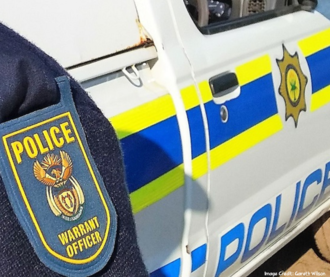.png)
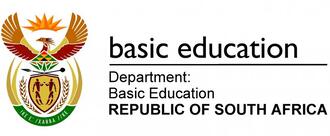
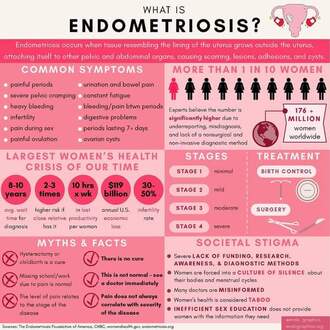
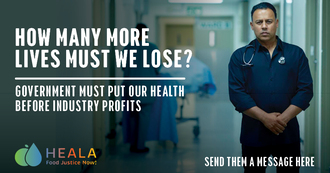.jpg)
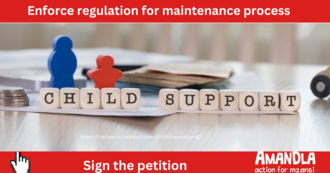
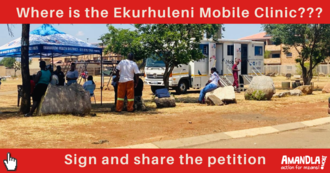
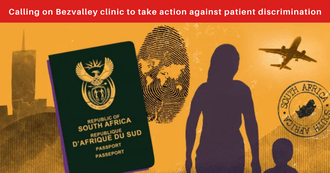.png)
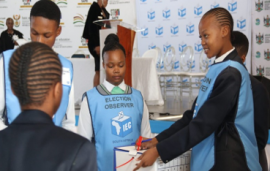
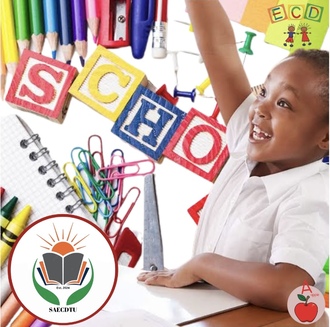
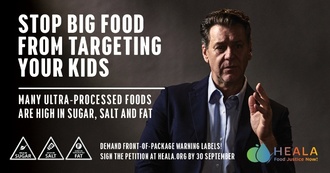.jpg)
